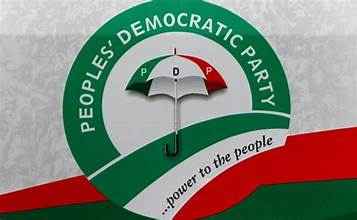The Independent National Electoral Commission (INEC) has turned down the Peoples Democratic Party’s (PDP) request to reassign Anugbum Onuoha, the Edo State Resident Electoral Commissioner (REC), in light of the approaching governorship election on September 21.
The PDP previously called for Mr Onuoha’s removal, citing his familial connection to Nyesom Wike, the Minister of the Federal Capital Territory, as a potential conflict of interest.

In a protest letter directed to INEC Chairman Mahmood Yakubu, Edo State PDP Chairman Anthony Aziegbemhin raised concerns about the close relationship between Wike and Onuoha. He stated, “The relationship between these two individuals cannot be overlooked, as they are not only related but also share a close friendship.”
He further elaborated that, “The Edo REC is a cousin of the FCT Minister, Mr. Wike. Additionally, he previously served as a Commissioner and Special Adviser for Lands, Survey, and Housing during Wike’s governorship in Rivers State.”
In a recent interview, Wike acknowledged his connection with the REC but dismissed claims that he aimed to manipulate the election process in favour of the All Progressives Congress (APC).
In response to the PDP’s demands, Rotimi Oyekanmi, the chief press secretary to the INEC Chairman, urged the party to concentrate on the electoral process itself.
“The REC for Edo State will remain in position,” Oyekanmi stated. “The gubernatorial election is set to occur on September 21, 2024, across 4,519 polling units, not within the REC’s office.”
He added that results from each polling unit will be announced by the designated presiding officers following the voting, ballot sorting, and counting procedures, all in the presence of accredited party agents and other stakeholders.
“The presiding officer will also photograph the polling unit results using the Bimodal Voter Accreditation System and upload them to the INEC Result Viewing portal. This system is designed for transparency and is not the same as electronic voting or the electronic transmission of results,” he clarified.
“The IReV system is implemented to ensure transparency, as the Nigerian constitution currently does not permit electronic voting. Copies of the polling unit results will be distributed to accredited party representatives,” he concluded.




